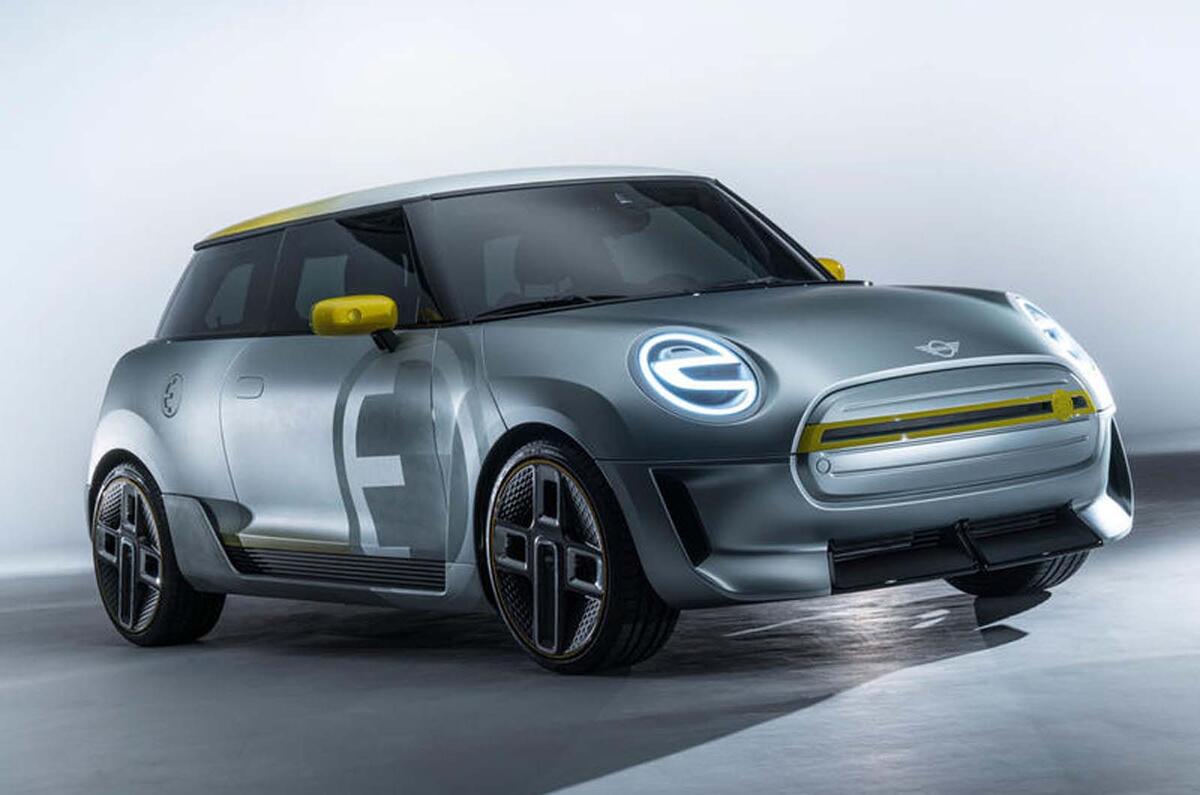Mini is "the most urban car brand” but also one of the hardest to switch to full electric power due to the size of its vehicles, according to boss Peter Schwarzenbauer.
Highlighting the upcoming Mini E, which will be built in Oxford from 2019, and the alternative version of the vehicle, which will be produced in co-operation with car maker Great Wall in China, Schwarzenbauer, said: “Electrifying Mini is quite a challenge, chiefly because of the small footprint of the cars.
Mini Electric: first pictures of 'pivotal' zero-emission 2019 model
It does not leave much room for batteries.
“But if you look at the role of electrification in the urban environment and the desire to be local emissions-free, there is no other brand with the credentials of Mini. It should be a natural fit, and that is the direction we’re moving towards for the future.
“The success of the plug-in hybrid Countryman shows what can be achieved, and the full electric Mini that is coming will show another step.”
Schwarzenbauer also highlighted that the joint venture to build electric Minis in China – the first time Minis have been made outside of Europe – was necessary in order to qualify for the country’s New EnergyVehicles regulations, which require a proportion of the car’s parts to be sourced and manufactured there.
The BMW i3 does not qualify.The BMW Group is known to be working on solid-state batteries in partnership with Toyota, with a sale date mooted to be around 2025. Both smaller and more powerful thantoday’s batteries, they could potentially pave the way for a range of fully electric Minis.
Read more
Mini 1499 GT kick-starts 1.5-litre Mini hatch range
Mini Electric: first pictures of 'pivotal' zero-emission 2019 model
Classic Mini Electric revealed to emphasise brand's EV plans





Join the debate
Add your comment
How do we charge them?
Its almost as if a retro
Its almost as if a retro pastiche of a 1950's car isnt the ideal basis for a 21st century urban EV.
Retro models lead to a dead end and conservative design is restrictive, surely theres the opportunity to create a 21st century EV iconic model, which will be copied as a retro model fifty years from now.
There is Bob Cat Brian
I have spent quite a lot of time coming up with exciting new designs for cars.
I believe that some of them might become iconic if they were put into series production.
Its almost as if a retro
Its almost as if a retro pastiche of a 1950's car isnt the ideal basis for a 21st century urban EV.
Retro models lead to a dead end and conservative design is restrictive, surely theres the opportunity to create a 21st century EV iconic model, which will be copied as a retro model fifty years from now.